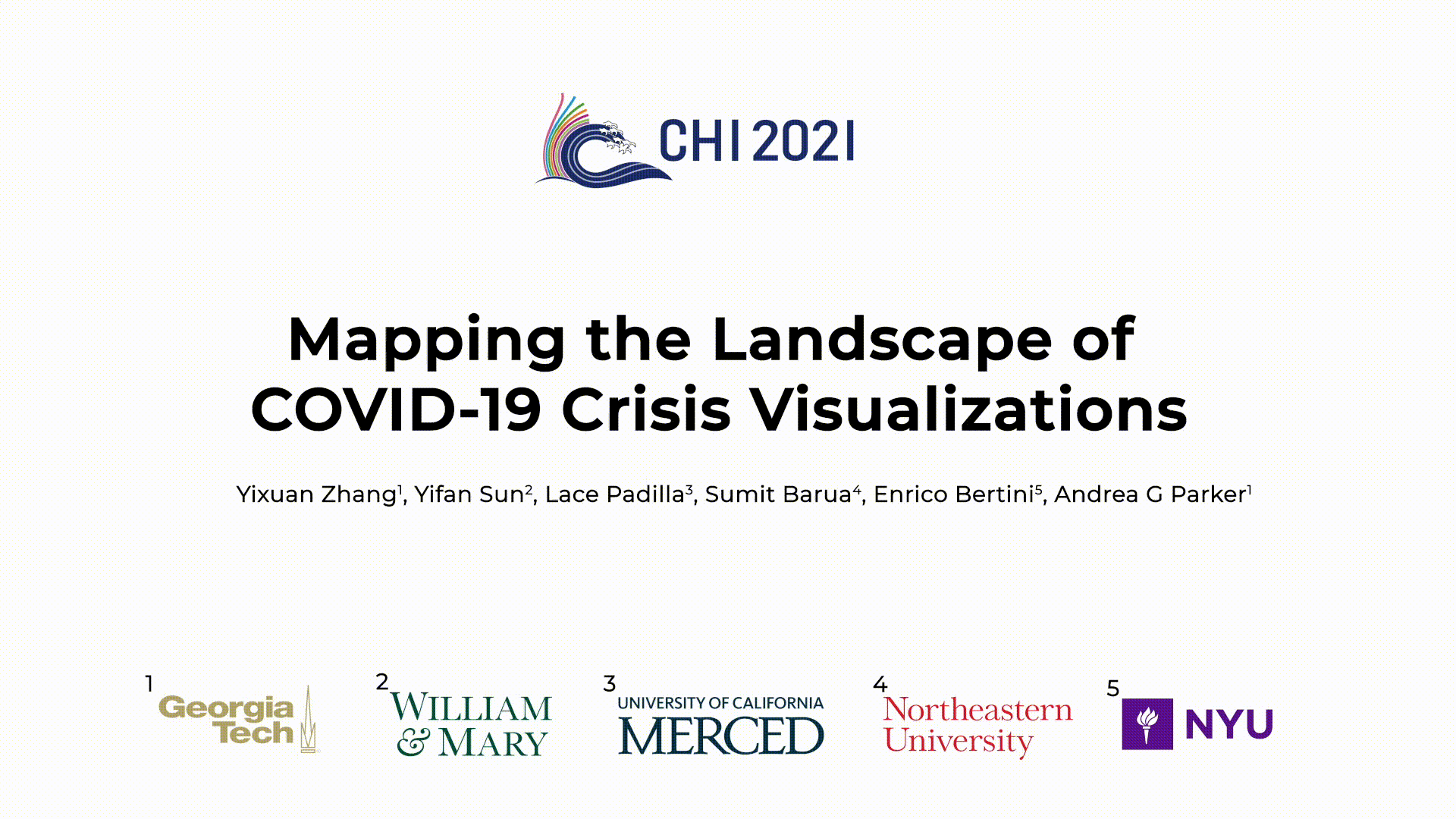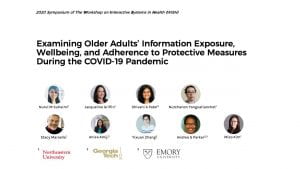The COVID Information-Seeking Project was launched in March 2020 by an interdisciplinary-research group from computer science, social epidemiology, media arts and design, mechanical and industrial engineering, and psychology. Our research aims to examine the barriers to and impact of COVID-19 information-seeking amongst traditionally marginalized populations. Accordingly, our work will investigate and computationally model COVID-19 information-seeking and exposure amongst marginalized communities and build novel tools that support positive mental and physical health in these groups. In addition, our research also seeks to investigate challenges in existing information design and dissemination, and more broadly, issues surrounding information infrastructure amidst the pandemic from the information producers’ perspectives. The goal of our research is to help combat the COVID-19 pandemic and to enhance the community resiliency for future crises.
PRINCIPAL INVESTIGATORS



Northeastern University

Northeastern University

Emory University
RESEARCH TEAM

Georgia Tech



Georgia Tech
RECENT PUBLICATIONS
 Overview: In this work, we conducted mixed- methods, longitudinal research to examine how people’s trust and distrust emerge, transform, and collapse in the processes of information seeking during the COVID-19 pandemic.
Overview: In this work, we conducted mixed- methods, longitudinal research to examine how people’s trust and distrust emerge, transform, and collapse in the processes of information seeking during the COVID-19 pandemic.
Keywords: crisis informatics, information behaviors, trust, distrust, misinformation, information infrastructure, social media, crowdsourcing, COVID-19, marginalized populations
Citation:
Yixuan Zhang, Nurul Suhaimi, Nutchanon Yongsatianchot, Joseph D Gaggiano, Miso Kim, Shivani A. Patel, Yifan Sun, Stacy Marsella, Jacqueline Griffin, and Andrea G. Parker. 2022. Shifting Trust: Examining How Trust and Distrust Emerge, Transform, and Collapse in COVID-19 Information Seeking. In Proceedings of the SIGCHI Conference on Human Factors in Computing Systems (CHI’22), April 29-May 5, 2022, New Orleans, LA, USA. ACM, New York, NY, USA, 21 pages. https://doi.org/10.1145/3491102.3501889
Research Materials:
[PDF] [Video]
 Overview: By reviewing 668 COVID-19 crisis visualizations (i.e., visual representations of information about COVID-19), we examined who, (uses) what data, (to communicate) what messages, in what form, under what circumstances in the context of COVID-19 crisis visualizations, to whom, and with what effect.
Overview: By reviewing 668 COVID-19 crisis visualizations (i.e., visual representations of information about COVID-19), we examined who, (uses) what data, (to communicate) what messages, in what form, under what circumstances in the context of COVID-19 crisis visualizations, to whom, and with what effect.
Keywords: crisis informatics, visualization, COVID-19
Citation:
Yixuan Zhang, Yifan Sun, Lace Padilla, Sumit Barua, Enrico Bertini, and Andrea G Parker. 2021. Mapping the Landscape of COVID-19 Crisis Visualizations. Proceedings of the 2021 CHI Conference on Human Factors in Computing Systems. Association for Computing Machinery, New York, NY, USA, Article 608, 1–23. DOI:https://doi.org/10.1145/3411764.3445381
Research Materials:
[Paper PDF] [ACM SIGCHI 5min Talk] [1m40s Overview]
Overview: This work investigates the association between information exposure and wellbeing as well as adherence to COVID-19 protective measures. Our initial results show that older adults received information related to COVID-19 less frequently than the middle-aged group, yet they feel more content and less stressed than the other age groups.
Keywords: information behaviors, protective measures, socioeconomic status, older adults, COVID-19
Citation:
Nurul Suhaimi, Nutchanon Yongsatianchot, Yixuan Zhang, Miso Kim, Shivani A. Patel, Stacy Marsella, Andrea G. Parker, and Jacqueline Griffin. Examining Older Adults’ Information Exposure, Wellbeing, and Adherence to Protective Measures During the COVID-19 Pandemic. The Workgroup on Interactive Systems in Health (WISH’20)
Research Materials:
[Paper PDF]
ACKNOWLEDGEMENT
This long-term research is supported by Google, Northeastern University, and Georgia Tech. We also thank our survey respondents and interview participants for their support.



